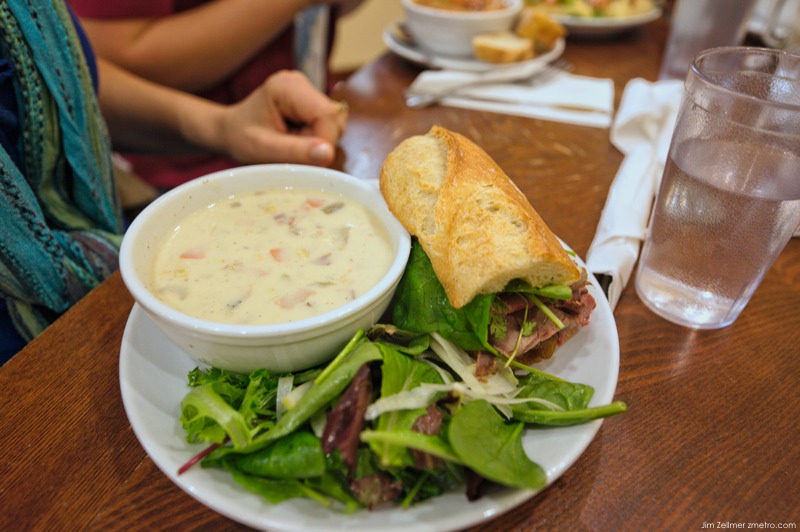I had hoped I might meet Tony Blair at one of London’s more bustling venues – mainly, I confess, because I wanted to measure the reaction of the throng. But the rules of Lunch with the FT leave the choice with the guest. So, after a certain amount of cloak and daggery, insisted upon by the police protection officers who still accompany him everywhere, I arrive at Blair’s local Italian, Locanda Locatelli.
It is one of those restaurants comfortable with celebrity. On a weekday lunchtime most tables seem to be occupied by business types but Madonna is said to be among the evening regulars. Our corner booth offers a panoramic view of polished wood, fabric wall coverings and soft leather banquettes. A head or two turns discreetly as Blair enters. No one is impolite enough to stare.
Britain’s former prime minister presents a conundrum. His memoir has invited torrents of invective from enemies (critics is much too soft a word) among metropolitan elites. Yet copies of A Journey are flying off the shelves as “real people” open their wallets to read Blair’s version of events. He did, after all, win three elections and put Britain back on the international stage. Then again, he also stood shoulder to shoulder with George W Bush in Iraq.
Football Saturday Style






Madison Sourdough’s Impressive Lunch



Worth a stop, Madison Sourdough.
What Did We Do, Pre iPhone; Part II


I talked with an iPhone owner during a recent conference. While she was tapping away on email and a variety of apps, she mentioned “I don’t know what I did before….”.
Changing everything, including education.
US Tax Reform: How about this for a tax plan: cut most people’s taxes by half, eliminate the need to file returns, and provide the Treasury with a better way to reduce the deficit. Sound impossible? It’s not. Here’s how to get it done.
Keith Libbey & Evan Thomas:
Most Americans spend dozens, if not hundreds, of hours attempting, not always successfully, to do their tax returns. We spend almost $30 billion paying accountants to fill out the complicated forms, and by some estimates we devote $110 billion of our own labor just keeping track of all the necessary records and paperwork. Americans pay about 85 percent of the taxes they owe, better than in most countries, but the shortfall is still a drain on the Treasury (and the rich seem to find a way to avoid taxes legally). Is this costly, demoralizing struggle between the IRS and the rest of us really necessary?
The short answer is no. There is a way to relieve almost all Americans of the annual April 15 nightmare. What’s more, it’s a necessary first step toward a plan to cut the looming federal deficit. The time is right for thoroughgoing tax reform—a true clean slate—that will bring in more revenue while giving the public a greater sense of fairness. The reforms we propose will even allow most people to take home more pay than they do now.
The place to start is to cut almost everyone’s payroll and income taxes by half. Yes, you read that right. Cut most tax rates, which now run from 10 to 39 percent, by half. All individual taxes would be collected through company withholding taxes on compensation (salary, bonus, deferred payments, etc.) and investment income (dividends, interest, capital gains, rents) to individuals. The very rich—those making more than $2 million a year—would still pay a top tax rate of 30 percent on earned income. The rate on investment income would be 15 percent. The result: individuals would not have to file tax returns, most Americans would take home more pay than they do now, the tax base would be broadened, and the AMT—the alternative minimum tax, which sweeps up more taxpayers every year—would be eliminated.
Too good to be true? There’s no free lunch. The revenue lost to the government—roughly half of all personal federal taxes—has to come from someplace else. The best fix is to eliminate all deductions and exemptions for individual taxpayers—all those tax breaks that were intended to promote economic activity or serve worthy social goals but have ended up creating myriad unfair outcomes. It’s true that the wealthiest 1 percent currently pays about 18 percent of all taxes. Still, thanks to clever tax dodges, the top 400 income earners pay an average tax rate of 16.6 percent; megabillionaire Warren Buffett notes that his secretary pays a higher tax rate than he does.
Digital Maoism
FROM “Wikinomics” to “Cognitive Surplus” to “Crowdsourcing”, there is no shortage of books lauding the “Web 2.0” era and celebrating the online collaboration, interaction and sharing that it makes possible. Today anyone can publish a blog or put a video on YouTube, and thousands of online volunteers can collectively produce an operating system like Linux or an encyclopedia like Wikipedia. Isn’t that great?
No, says Jaron Lanier, a technologist, musician and polymath who is best known for his pioneering work in the field of virtual reality. His book, “You Are Not A Gadget: A Manifesto”, published earlier this year, is a provocative attack on many of the internet’s sacred cows. Mr Lanier lays into the Web 2.0 culture, arguing that what passes for creativity today is really just endlessly rehashed content and that the “fake friendship” of social networks “is just bait laid by the lords of the clouds to lure hypothetical advertisers”. For Mr Lanier there is no wisdom of crowds, only a cruel mob. “Anonymous blog comments, vapid video pranks and lightweight mash-ups may seem trivial and harmless,” he writes, “but as a whole, this widespread practice of fragmentary, impersonal communication has demeaned personal interaction.”
If this criticism of Google, Facebook, Twitter and Wikipedia had come from an outsider—a dyed-in-the-wool technophobe—then nobody would have paid much attention. But Mr Lanier’s denunciation of internet groupthink as “digital Maoism” carries more weight because of his career at technology’s cutting edge.
God’s Glory: A Fabulous Madison Sunset

A September Country Drive

The enduring solitude of combat vets
Retired Army Special Forces Sgt. Maj. Alan Farrell
Retired Army Special Forces Sgt. Maj. Alan Farrell is one of the more interesting people in this country nowadays, a decorated veteran of the Vietnam War who teaches French at VMI, reviews films and writes poetry. Just your typical sergeant major/brigadier general with a Ph.D. in French and a fistful of other degrees.
This is a speech that he gave to vets at the Harvard Business School last Veterans’ Day. I know it is long but a lot of you can’t go outside anyway because of the hurricane:
Clearing Storm Near Paoli
